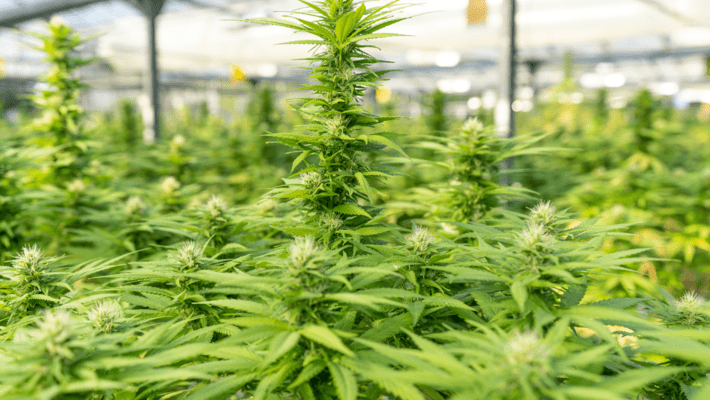
Cannabis Classifications: Is Good Weed a Stimulant, Hallucinogen, or Depressant?
Published on 1/24/22
Although cannabis culture has progressed to the point where we rarely ever hear marijuana mentioned alongside hard drugs, it is important to remember that cannabis is still a drug. Meaning its classification is no different than other legalized drugs, like caffeine. Cannabis is further complicated by a wealth of different categories: the broad indica and sativa divide, hybrids, cloned strains, medical-grade, high-THC, and many other variants. Individual chemical formulae of cannabis, such as its terpenes, will further affect how it impacts your physical and mental health.
While cannabis is becoming legalized at a rapid pace, it remains illegal federally, meaning that the federal government can hypothetically give you a major sentence for taking a puff of a joint. How is cannabis classified as a scheduled narcotic, and how are cannabis properties different from other illegal drugs.
Scheduling
 Unsplash
UnsplashThe federal government created four separate schedules of drugs in 1970 when President Richard Nixon signed the Controlled Substances Act into law. This act criminalized drug use and established different standards, called schedules, for all drugs. All Schedule 1 narcotics have the toughest criminal punishments for buying, selling, and using, including cannabis. They fall under four separate sub-categories. Depressants are drugs like alcohol that inhibit brain and body functions, causing delayed reactions. Stimulants are drugs like cocaine, which increase the heart rate and make a user feel euphoric. Hallucinogens are drugs like LSD, changing the user's perception of the world. Finally, opiates are drugs like heroin, drastically affecting physical and mental health with a strong degree of dependency.
What category is marijuana in? Well, it depends.
Biological Reactions
 Unsplash
UnsplashThe question of what marijuana is classified as reflects aspects of how cannabis can affect the body and mind in different ways. Marijuana has many depressant characteristics, which appear in typical stoner behavior like inability to remember things or a desire to glue yourself to the couch for an evening. A commonly cited fact that cannabis lowers reaction times reflects how marijuana can depress brain function. That said, cannabis use also raises the heart rate (as anyone who has taken a major dab hit can attest) and can increase your appetite and mood in ways that are more similar to stimulants. Finally, while you won't see any pink elephants after taking a hit off a joint, cannabis has been reported to have mild hallucinogenic properties: people report thinking that things look or sound different, while some senses are amplified or changed due to the connections THC creates in the brain. As such, there's an argument to place cannabis in many of the major federal schedule classifications.
Finally, there's the issue of cannabis and health. As medical marijuana becomes more widespread, with nearly every state issuing some form of legal medical cannabis rights, the line between recreational and medicinal drugs becomes quite blurry. Opiates are also used in both recreational and medicinal use; the prescription of opiates by doctors can be a major relief after serious health issues like surgery or traumatic wounds, yet their over-prescription has also created a national crisis in the United States. Thankfully, cannabis use will never be anywhere near as socially damaging as opiate use, so it cannot be classified as an opiate even if used medicinally.
Uncle Sam Says So
 Unsplash
UnsplashHowever, look up cannabis on the federal schedule list, and you see that it firmly lands in the depressant category. This makes sense for several reasons, primarily that marijuana affects human psychology by creating new pathways in the brain for neurons to fire. This makes it different from alcohol, which doesn't re-wire your brain so much as bypass it, but the effects of cannabis and alcohol are often similar to depressants. Both amplify your mood, both can make it more difficult to do physical or mental tasks, and both are used recreationally for people who feel like they need to relax. While cannabis has a definite stimulating effect, some of it is due to the body's reaction rather than the drug itself: your heart rate will increase after a bong hit shreds your lungs, but not after you take a vape hit.
What is CBD classified as? Generally, the same: a depressant. CBD relieves anxiety and boosts appetite, two things that may be associated with a stimulant, but its mood regulation and its ability to put you to sleep make it firmly a depressant. CBD and THC share that quality since both restrict some brain functions despite their positive impact on a person's psychology.
Cannabis remaining on the federal schedule list is by far its greatest obstacle towards full legalization throughout the nation. As some politicians and activists attempt to remove the drug from the schedule list, the prohibition policies towards cannabis grow looser and looser, even if they still hold the threat of serious consequences.
Do you participate in drug policy discussions, debates, or initiatives? How do you hope to move cannabis forward in the national law and culture? Let us know in the comments below!
